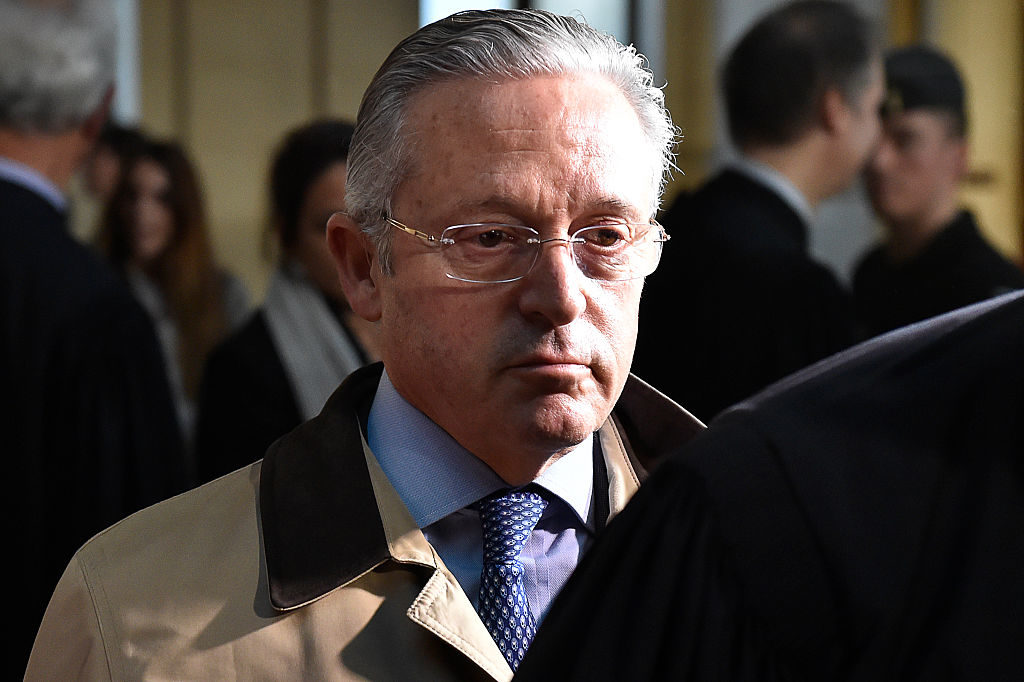Law & Politics
Judge ‘Stupefied’ by Arguments on Day One of Wildenstein Tax Fraud Trial
The trial opened with a careless letter and the claims of a Swiss attorney.

The trial opened with a careless letter and the claims of a Swiss attorney.

The trial for tax fraud of the Wildenstein art-dealing family began in earnest Monday after France’s high court rejected an attempt by the defendants to once again delay the proceedings.
The Wildenstein family is accused of using trusts and shell companies to dodge as much as €550 million in estate taxes upon the death of Daniel Wildenstein.
As the court tries to shed light on what assets the Wildensteins may have hidden, when, and how, the trial could spin into a historic clash between France’s legal system—in which trusts do not even exist—and the dark web of offshore finance that shields assets from the tax collector’s grasp.
“This is a way of dismembering property,” said presiding judge Olivier Geron. “It does not fit into any box in French civil law.”
French law assumes a “unity of assets”—and debts—between businesses and institutions and their owners, making trusts more or less impossible.
While trusts do not exist in France, the French government agrees to recognize them insofar as they do not threaten “French public order.”
The fact that the Wildensteins—whose family holdings reportedly include works by Caravaggio, Monet, Picasso, and Renoir, as well as a 75,000-acre ranch in Kenya—managed to report their inheritance from father Daniel Wildenstein at a comparatively paltry $61 million could easily appear as a threat to public order in the eyes of French authorities.
The inheritors of Daniel Wildenstein’s estate did not disclose their status as beneficiaries of offshore trusts—and have argued that they were not required to in France before a 2011 law explicitly stated that such assets had to be claimed as taxable wealth.
Financial trusts in tax havens located in the Bahamas and Guernsey, lawyers, and a notary who allegedly helped manage the offshoring of the Wildenstein’s wealth are on trial, alongside the family, as accomplices.
The clash of legal cultures became clear within the first minutes of the trial, as a representative of the Bahamas-based defendant Royal Bank of Canada Trust Company explained that property handed over to a trust was off-limits to creditors who may be pursuing the beneficiary of a trust for unpaid debts. The witness for RBC Trust did point out one exception, however—that assets in a trust could be seized, in some cases, if a court found that the act of creating the trust was an act of fraud or fiscal evasion.
The exchange seemed to offer an important line of reasoning for the court, which aimed to show that it could honor the institution of trusts while still pursuing the Wildenstein family for its allegedly fraudulent use of them.
Guy Wildenstein continued to claim that he knew little about the details of his father’s use of trusts.
The judge questioned him regarding a passage from a letter, one with instructions for the assets of one trust in which he and his brother had signed as the “heirs” of Daniel Wildenstein—and not as the beneficiaries of the trust. Why would they sign this way if the assets in question were not, indeed, inheritance?
“I guess it was a writing error,” Wildenstein said.
Understanding exactly what responsibilities were expected of the trustees and protectors was a key line of questioning on Monday, one that could play an important role in whether the trusts are seen as legitimate.
In the case of the “Son’s Trust” managed by Guernsey-based defendant Northern Trust, the entity existed only as a vessel to hold shares in an offshore company that held racehorses, real estate, and a portion of the Wildenstein’s art collection.
Both the trustee and the protector—Swiss lawyer Peter Altorfer—claimed to have had limited responsibilities and no knowledge of the actual wealth held in the trust.
Related: Guy Wildenstein’s $600 Million Tax Evasion Trial Kicks Off
“I only know the nominal amount of the shares, not what they’re worth,” said the representative of Northern Trust. “The trust deed is very explicit that we are not to get involved in the affairs of the underlying copy. Our role is to hold the shares.”
Altorfer says he did not paid attention to either the value of real estate in the trust or the racehorse business, but that he was “aware” of the art holdings.
“This is stupefying,” said the judge at one point. “How can the protector or trustee, who are charged with protecting the assets, not even know what they are worth?”